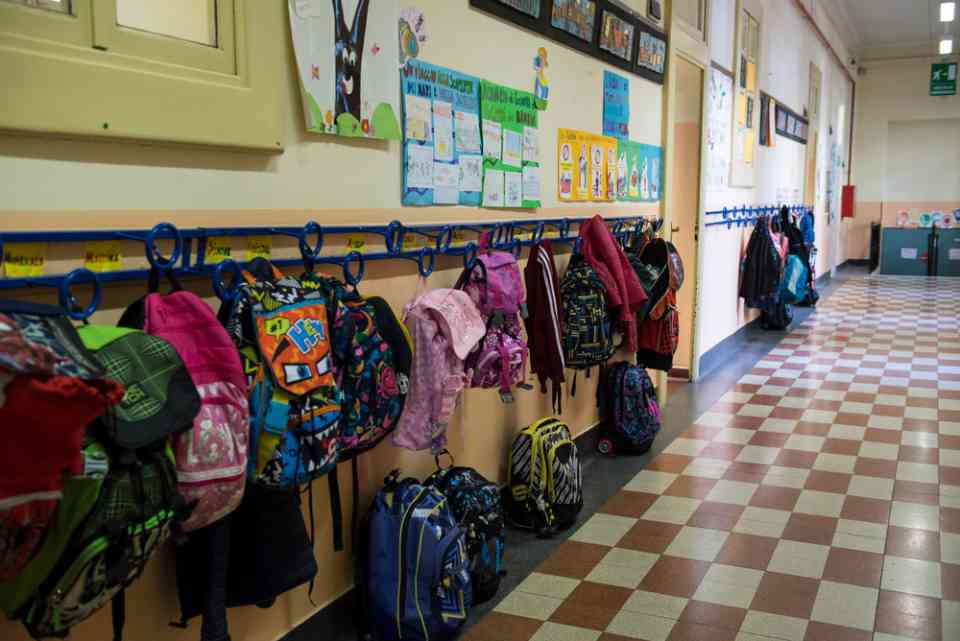Few Things To Know About Scuola Elementare or Primary School in Italy

Italy is renowned for its rich history, art, culture, and cuisine. It is also famous for its education system, which is based on the principle of imparting quality education to children. Scuola elementare, also known as primary school, is the first step in the education journey of Italian children. In this article, we will discuss a few things one should know about primary school in Italy.
- Age of Admission and Duration of the Course
In Italy, primary school is mandatory for all children between six and eleven years old. The course is designed to last for five years, during which children are taught basic subjects such as Italian, Mathematics, Science, English, Social Studies, and Physical Education. Apart from these subjects, children are also introduced to music, art, and drama. The primary goal of primary school is to provide a strong foundation for children to build upon as they progress to higher levels of education. - Curriculum and Teaching Methods
The primary school curriculum in Italy is designed to promote creativity, critical thinking, and problem-solving skills among children. The teaching methods are interactive, and teachers use a combination of lectures, group discussions, and practical activities to engage children in the learning process. The focus is on developing the child’s overall personality and nurturing social and emotional skills. The curriculum is structured around core subjects such as Italian language and literature, mathematics, science, history, and geography. In addition, children are introduced to foreign languages, art, music, and physical education. - School Structure and Class Size
The primary school in Italy follows a vertical structure, where children of different ages are taught in the same classroom. This structure is known as the “classe unica” or “single class.” This approach allows children to learn from one another and fosters community within the classroom. The class size is relatively small, with an average of 20-25 students per class. The teacher-student ratio is also favorable, with one teacher for every 15-20 students. This allows teachers to provide individual attention to each child and ensure they progress well. - Assessments and Evaluations
Assessments in primary schools in Italy are continuous and formative. Teachers use a range of assessment methods, including quizzes, tests, assignments, and projects, to evaluate children’s progress. The focus is on identifying the strengths and weaknesses of each child and providing them with personalized support to help them improve. There are no standardized tests at the end of the course. Still, children are evaluated based on their overall performance and participation in class activities. - Parental Involvement and Support
Parents play a vital role in educating their children in primary school in Italy. They are expected to attend parent-teacher meetings regularly and support their children in academic and extracurricular activities. The school encourages parents to participate in school events and activities. It provides them with regular updates on their child’s progress. This helps in fostering a collaborative and supportive environment that benefits the child’s overall development.
It is essential to note that primary school is a public school, and education is free of charge for all children. Private schools are also available but less prevalent than public schools. Secondly, primary school is an integral part of the education system, and it plays a crucial role in shaping the future of Italian children. The curriculum promotes creativity, critical thinking, and problem-solving skills among children, and the teaching methods are interactive and focused on overall development.Finally, it is worth noting that primary school in Italy strongly emphasizes the values of respect, kindness, and empathy towards others. The school curriculum includes lessons on these values, and teachers encourage children to practice them daily. This helps in creating a positive and inclusive learning environment that benefits all children.
In conclusion, primary school, or primary school, in Italy is an essential step in the education journey of Italian children. It provides a strong foundation for children to build upon as they progress to higher levels of education. The curriculum is designed to promote creativity, critical thinking, and problem-solving skills. The teaching methods are interactive and focused on overall development.
The school strongly emphasizes the values of respect, kindness, and empathy toward others, creating a positive and inclusive learning environment. Overall, scuola elementare in Italy is a vital component of the Italian education system, and it plays a crucial role in shaping the future of Italian children.
Have you read?
Why Employers Forcing a Return to Office is Leading to More Worker Power and Unionization by Dr. Gleb Tsipursky.
Want to succeed as a digital entrepreneur? The key is working smarter, not harder by Hemi Hossain.
Pirates, Treasure, & Your Retirement by David C. Bentall.
How to Become Successful in Business By Leaning Into A Community by Alden Mills.
CEOS: Give the Gift of a Peer Group by Leo Bottary.
Add CEOWORLD magazine to your Google News feed.
Follow CEOWORLD magazine headlines on: Google News, LinkedIn, Twitter, and Facebook.
This report/news/ranking/statistics has been prepared only for general guidance on matters of interest and does not constitute professional advice. You should not act upon the information contained in this publication without obtaining specific professional advice. No representation or warranty (express or implied) is given as to the accuracy or completeness of the information contained in this publication, and, to the extent permitted by law, CEOWORLD magazine does not accept or assume any liability, responsibility or duty of care for any consequences of you or anyone else acting, or refraining to act, in reliance on the information contained in this publication or for any decision based on it.
Copyright 2024 The CEOWORLD magazine. All rights reserved. This material (and any extract from it) must not be copied, redistributed or placed on any website, without CEOWORLD magazine' prior written consent. For media queries, please contact: info@ceoworld.biz
SUBSCRIBE NEWSLETTER








